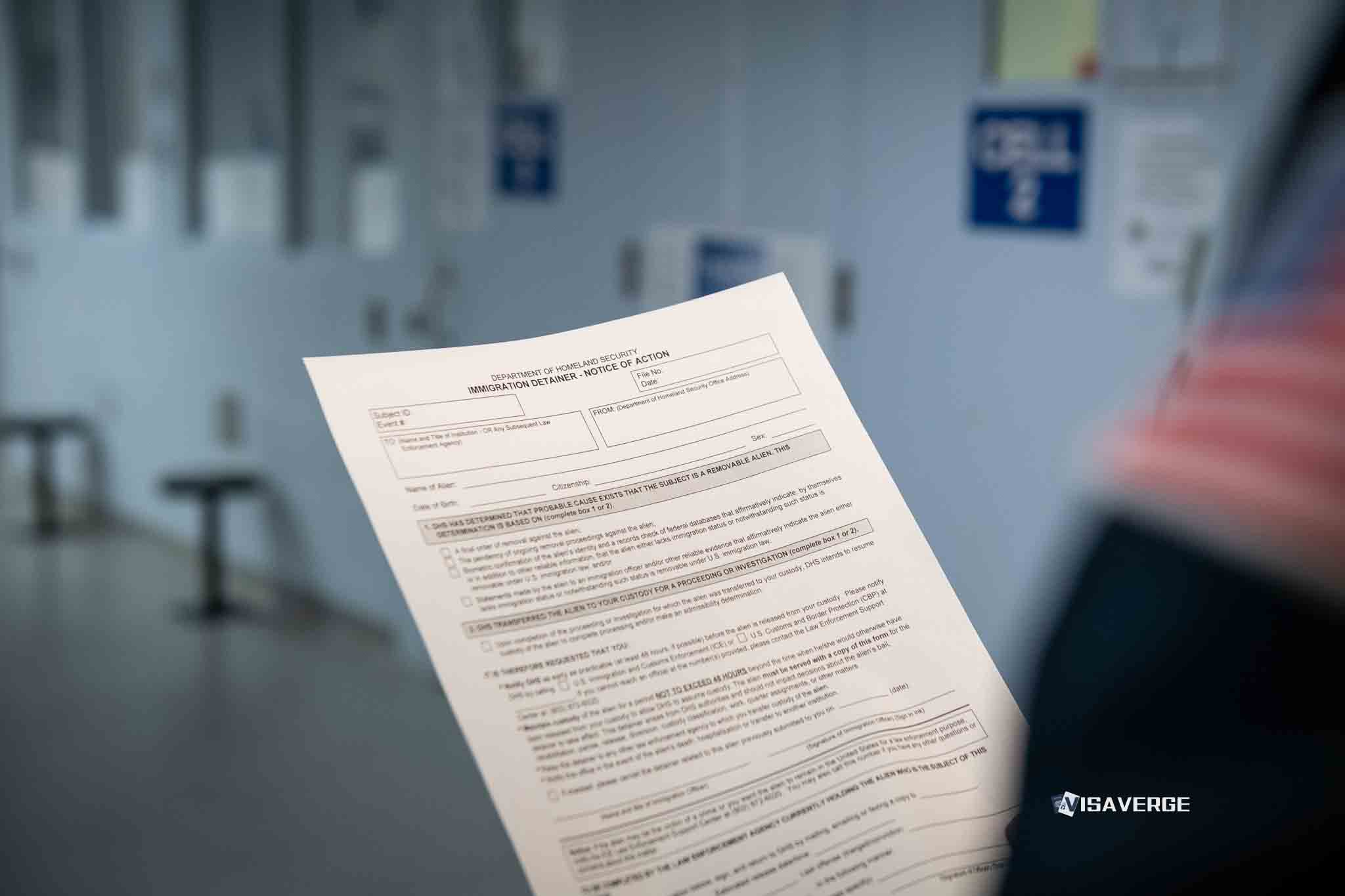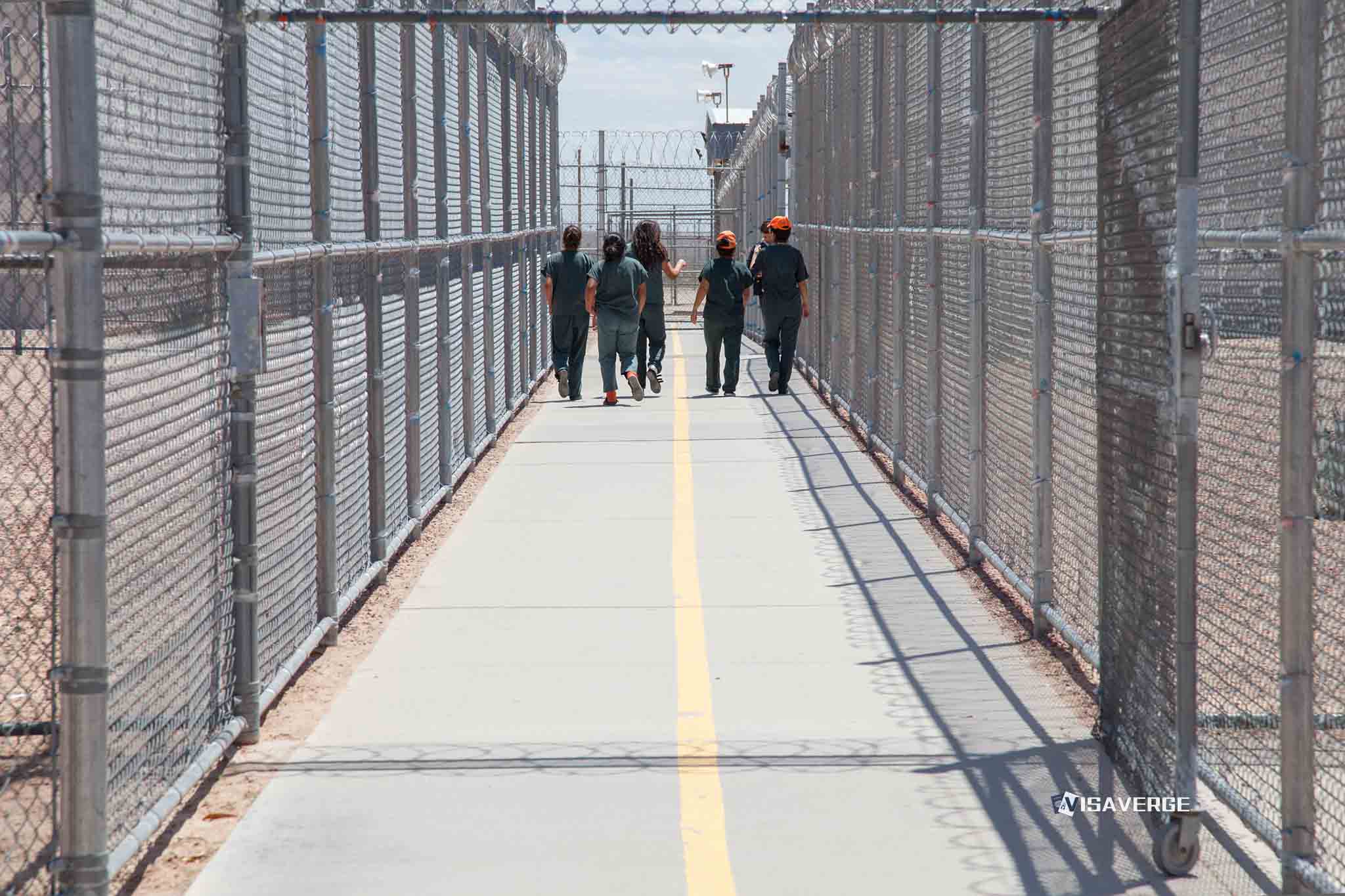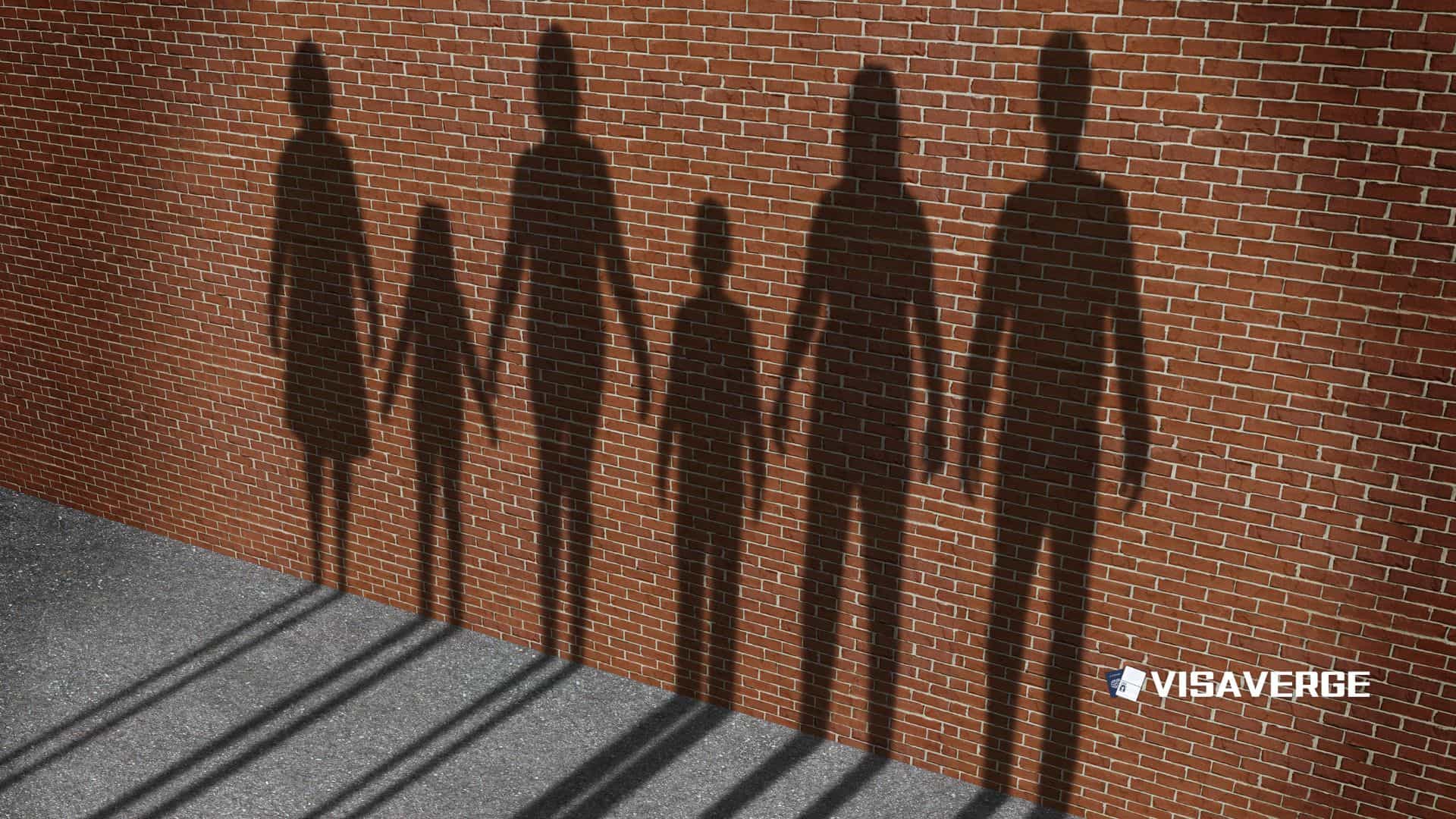Key Takeaways
• Internet outage at Stewart Detention Center delayed Ximena Arias-Cristobal’s immigration bond hearing on May 20, 2025.
• Ximena’s bond hearing rescheduled to May 21, 2025, due to AT&T system failure preventing virtual court participation.
• Bond hearings allow detainees like Ximena to await immigration cases outside detention if bail is granted.
A Tuesday internet outage at the Stewart Detention Center in Lumpkin, Georgia, has unexpectedly delayed the immigration bond hearing for 19-year-old Ximena Arias-Cristobal, a resident of Dalton, Georgia. The outage, traced to a system problem with AT&T, prevented both Ximena and the United States government attorney from joining a virtual hearing before a judge based in Atlanta. This postponement has added yet another layer of uncertainty and stress for Ximena and her family, who have already been facing a difficult immigration situation.
How the Delay Unfolded

Ximena’s bond hearing was originally set for 1:00 PM on Tuesday, May 20, 2025. The goal of this immigration bond hearing was to determine whether Ximena could return home while her larger immigration case is figured out. As reported by VisaVerge.com, such hearings are important because they can allow someone to wait for their main court date outside of detention instead of staying in a facility like the Stewart Detention Center.
At the scheduled time, staff at the Stewart Detention Center found they could not connect to the court or to lawyers outside the center. The internet outage, tied to a wider AT&T issue, made it impossible for Ximena Arias-Cristobal to see or speak to the judge about her situation. The same problem also blocked participation from the government’s lawyer. With no timeline from AT&T for restoring service, the judge canceled the hearing for the day. Ximena’s case now waits for another try, rescheduled for Wednesday, May 21, 2025, at 1:00 PM.
A Closer Look at Ximena’s Story
To understand why this sudden delay matters so much, it helps to know more about Ximena Arias-Cristobal’s situation. She was placed in Immigration and Customs Enforcement (ICE) custody almost two weeks before the hearing. Her case started with what at first seemed like a simple traffic stop. According to news sources, a Dalton Police officer pulled over Ximena, hoping to catch a vehicle involved in an illegal turn on Thornton Avenue. Dashcam footage later showed that Ximena was not driving the car investigators were actually looking for. As a result, the police dropped the original traffic charge soon after the stop.
However, the encounter did not end there. Police discovered Ximena was driving without a license. They also learned that she was not a U.S. citizen, and this led to her being held by ICE. Soon after, Ximena was taken to the Stewart Detention Center—a place known for holding people who are waiting for their immigration status to be decided.
The Importance of a Bond Hearing
Immigration bond hearings, like the one delayed by technical trouble, are a key part of the immigration process for people in detention. When someone is held by ICE while their case is open, a judge decides if they can leave the center for the months or even years it can take for their immigration case to finish. If a bond is set and paid, this person can wait at home and prepare for court.
For families like Ximena’s, bond hearings feel like a lifeline. According to her attorney, Dustin Baxter, Ximena’s team is hoping the judge will set a bond, allowing her to return home to Dalton and wait there while her immigration process plays out. This would mean she could be with her family and get back to her daily life, at least for now.
Yet, each day in detention has real consequences for young adults like Ximena. She had been studying at Dalton State College and was a cross-country runner when she was picked up by authorities. Every day she spends at Stewart Detention Center delays her plans and adds stress to her future.
Why the Internet Outage Matters
It may seem like a small detail—a broken internet connection—but for Ximena Arias-Cristobal, the system failure changed everything. The Stewart Detention Center, like many immigration holding facilities across the United States 🇺🇸, depends on stable internet for virtual court hearings. With judges, lawyers, and detainees often hundreds of miles apart, online hearings are often the only way for a case to move forward quickly.
The AT&T outage meant there was no way for Ximena to take part in her own hearing. It also showed how fragile important legal processes can be when they depend so completely on technology. This is not just about Ximena’s case. Across the country, thousands of immigrants like her wait in detention for a chance to speak with a judge. When internet or communications systems fail, entire court dockets can grind to a halt.
Key Points the Outage Highlighted:
– People in detention depend on virtual hearings to resolve their cases.
– System failures trickle down, increasing stress on families and attorneys.
– No clear plan from service providers makes things worse for those waiting.
Background: Ximena’s Journey and Legal Landscape
Ximena Arias-Cristobal’s path to this point started long before her arrest this year. She came to the United States 🇺🇸 from Mexico City in 2010, at about age four. She attended Dalton High School and was known as a dedicated cross-country athlete. Before her arrest, she was also a student at Dalton State College, working toward her future and settling into life in the U.S.
A detail that adds more weight to her case is that Ximena was not able to apply for DACA, which stands for Deferred Action for Childhood Arrivals. DACA, set up during President Obama’s time in office, lets some young people who came to the United States 🇺🇸 as children live and work without being deported, as long as they meet strict rules. However, DACA ended before Ximena could ever submit an application. This left her with few options to get any legal immigration status.
Her family, like many others, came to the United States 🇺🇸 to build a safer and better life. Her father, Jose Arias-Tovar, faced his own problems with immigration and was recently released from the same Stewart Detention Center on bond. Now, their family is hoping for the same outcome for Ximena.
Involvement of Local Leaders and Support
Ximena’s story has drawn attention from people beyond her own family. Georgia State Representative Kacey Carpenter wrote a letter in support of Ximena Arias-Cristobal to be shared with the judge. In the letter, Rep. Carpenter made it clear that while the focus of immigration enforcement should be on preventing dangerous crimes, people who commit minor offenses can get swept up in the process and face long detention.
The letter from a state lawmaker brings an important point of view. Sometimes, small mistakes—like driving without a license—lead to much bigger problems for people without legal immigration status. Leaders and community members increasingly want to see more fairness and common sense in how these cases are handled.
The Broader Impact of Delayed Immigration Bond Hearings
Delays like the one Ximena has faced do not just impact one person or one family. Across Georgia and the United States 🇺🇸, these interruptions can have big effects. Here are some of the wider challenges:
1. Effects on Detainees
When an internet outage or other technical breakdown stops a hearing, men and women in facilities like Stewart Detention Center must stay longer in detention. This means more emotional pain, lost time with loved ones, and more money spent on legal help.
2. Pressure on Legal and Court Systems
Lawyers, judges, and court staff have to reschedule every delayed hearing. This can slow down all cases—not only for the person whose hearing was delayed, but for others as well. It also creates stress for government attorneys who have other cases to prepare.
3. Strain for Families and Communities
The loved ones of people in detention are left in limbo. They may have already set aside time off work or spent money traveling to support someone in court. A sudden delay means more waiting, more stress, and often more costs.
4. Highlights Need for Reliable Technology
As more immigration courts use online hearings, the need for steady communication links grows. Any outage, from internet to power, can mess up a packed court schedule and hurts the most vulnerable first.
The Human Cost: Ximena’s Perspective
For Ximena Arias-Cristobal, missing her immigration bond hearing is not just a paperwork problem. It’s another barrier to her possible release and a return to normal life. The stress of being in an ICE detention center, away from her family and her life in Dalton, grows with every day of waiting.
Her attorney, Dustin Baxter, has focused on getting her out on bond, so she can help her legal team from home and get back to college. Being released on bond means Ximena could join her father and the rest of her family, go back to her studies, and support her case from outside the difficult setting of a detention center.
What’s Next for Ximena and Others in Her Situation
Ximena’s bond hearing is now set for Wednesday, May 21, 2025, at 1:00 PM. Her family, supporters, and attorney hope the judge will agree that Ximena should be allowed to go home while her immigration case continues. The result will not only affect her, but could also set an example for similar cases in Georgia and other parts of the United States 🇺🇸.
Looking beyond Ximena’s case, the problems seen at Stewart Detention Center show how the immigration system can be slowed down by things that have nothing to do with the law—like a cell tower outage or internet failure. Many observers say this points to a need for better backup plans and stronger technology for all parts of the immigration court process.
If you or someone you know faces an immigration bond hearing or needs to learn more about rights while in immigration custody, you can visit the official U.S. Immigration and Customs Enforcement (ICE) website for details about detention centers and legal rights.
Summary and Takeaways
The case of Ximena Arias-Cristobal highlights both the personal and the system-wide problems that can come up in the U.S. immigration process. She has spent nearly two weeks at the Stewart Detention Center, waiting for a chance to make her case to return home while her legal status is sorted out. A simple technical problem—an internet outage—has made her wait even longer, showing how technology troubles can have real and painful impacts for people in the system.
Support from her family, her local state representative, and her lawyer shows that people are paying attention to the human side of immigration enforcement in Georgia. As her rescheduled hearing approaches, many will watch to see if she gets released on bond and if the courts can respond better to these sorts of unexpected setbacks in the future.
Cases like Ximena’s remind us that fair and timely hearings are not just about laws and rules—they are about real lives, hopes, and futures in balance. With more focus on strong systems, both human and technical, perhaps more people will get the fair chance they deserve.
Learn Today
Immigration Bond Hearing → A court proceeding to decide if a detained immigrant can be released on bail before their case ends.
Stewart Detention Center → A facility in Georgia where immigrants are held while their legal status is determined.
Deferred Action for Childhood Arrivals (DACA) → A U.S. program protecting certain undocumented immigrants who arrived as children from deportation.
ICE (Immigration and Customs Enforcement) → U.S. federal agency responsible for enforcing immigration laws and detaining non-citizens.
Virtual Court Hearing → A legal proceeding conducted remotely through online communication tools instead of in person.
This Article in a Nutshell
A sudden internet outage at Stewart Detention Center halted 19-year-old Ximena Arias-Cristobal’s immigration bond hearing, adding stress and delays. Her hearing was rescheduled for May 21, 2025, highlighting reliance on technology in courts and the real human impact of system failures on detained immigrants’ lives.
— By VisaVerge.com
Read more:
• Mohsen Mahdawi Walks Free, Graduates After ICE Detention
• Rural Missouri Jails expand ICE contracts as detention needs grow
• ICE Detentions in Charlotte Zero In on Men
• Western Cape High Court rules asylum seekers’ detention unconstitutional
• Joe Exotic’s Husband Deported After ICE Detention








